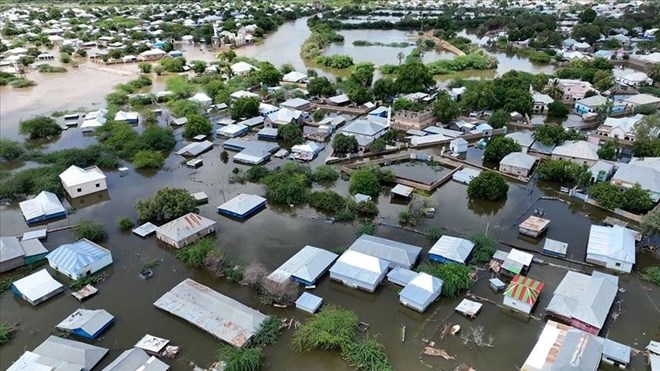Floods caused by severe rains that began in early October in Somalia have killed 50 people and displaced more than 500,000 others, according to the country’s national disaster agency.
According to the Somalia Disaster Management Agency (SoDMA), the heavy rains have also triggered landslides and flash floods in other parts of the country, devastating crops and livestock.
“The floods in the country have killed 50 people and displaced more than half a million citizens,” SoDMA Commissioner Mohamed Moalim told journalists Thursday evening in Mogadishu, Somalia’s capital.
Moalim stated that the organization has despatched a relief cargo plane to the Bardhere district in southern Somalia to assist flood victims, despite United Nations warnings that widespread displacement, heightened humanitarian needs, and greater property devastation are likely.
According to the UN Office for the Coordination of Humanitarian Affairs (OCHA), torrential rainfall and flooding have already affected 1.24 million people, with more predicted.
According to the UN and its partners, flooding in the current deyr (October to December) rainy season might affect 1.6 million people and ruin 1.5 million hectares of crops.
Rainfall is expected to increase due to the combination of El Nino conditions and a positive Indian Ocean Dipole phenomena.
Flooding was observed along the whole Juba River, with growing magnitude at Bardhere and downstream at Saakow, Buale ,according to a flood notice issued Monday by Somalia Water and Land Information Management, which was handled by the Food and Agriculture Organization of the United Nations.
Flooding was observed along the Shabelle River, with increasing magnitude at Beledweyne and moderate magnitude at Balcad.
The UN predicts that a flood of this scale will occur just once every 100 years, with substantial humanitarian consequences.
According to the OCHA, while all conceivable preparations are being made, a flood of this magnitude can only be managed, not prevented.

